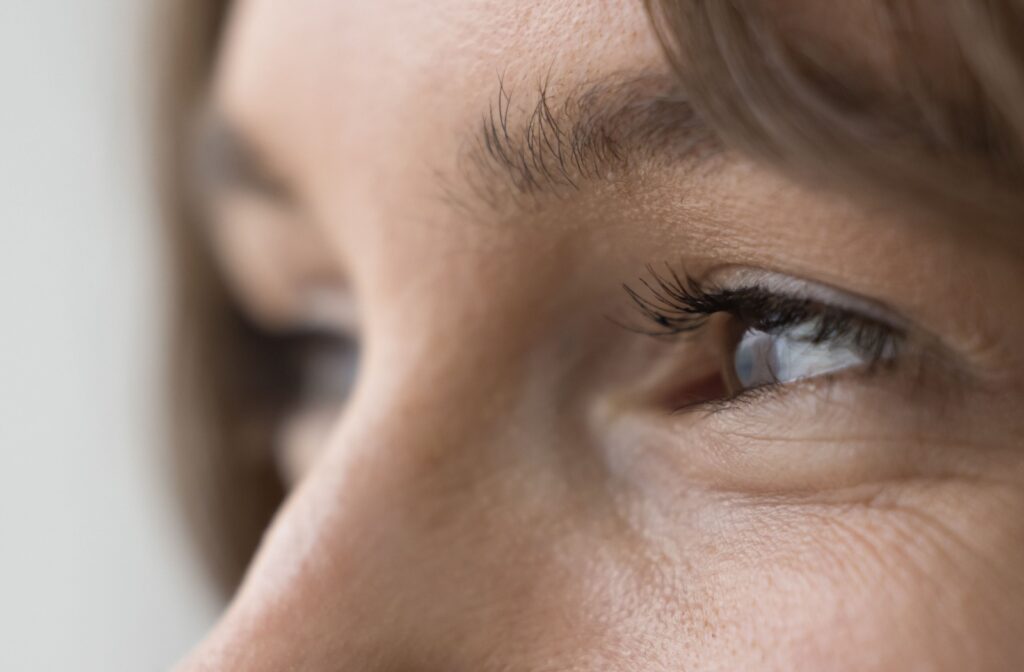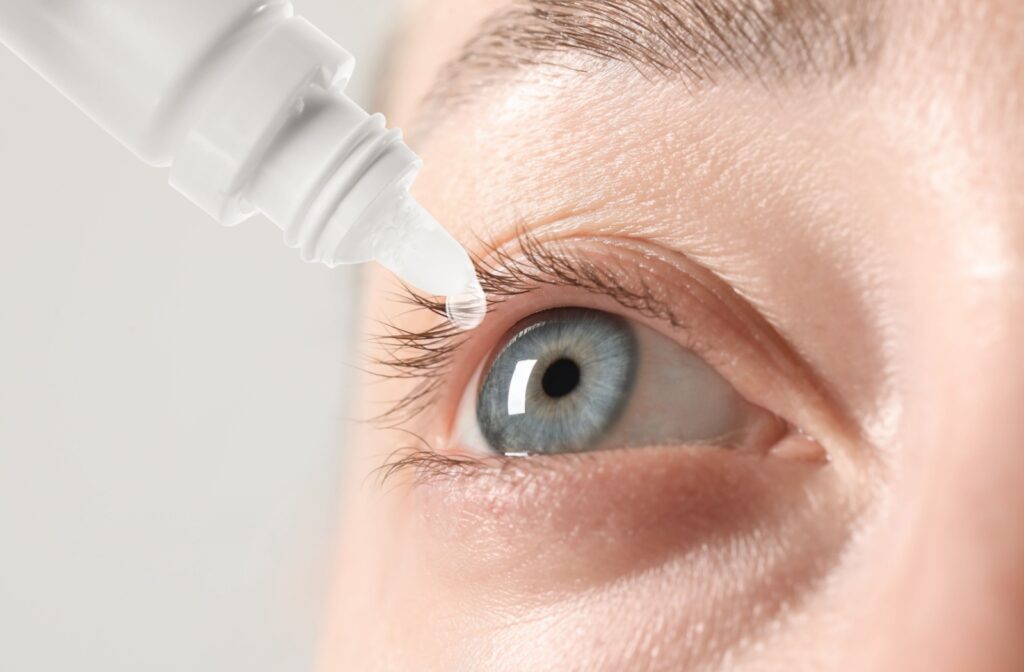Dry eye syndrome (DES) is a common condition that affects many Canadians. For many people, dry eyes are more than just an inconvenience—they can cause significant discomfort, hinder work productivity, and diminish quality of life.
While environmental factors and lifestyle choices—such as long hours spent in front of screens—are well-known contributors to dry eye symptoms, one question that often arises is: Can dry eye be genetic?
The answer to this question is multifaceted. While a variety of factors play a role in the development of dry eye syndrome, research is increasingly suggesting that genetics may contribute to its onset.
The Complex Web of Dry Eye Causes
Dry eye occurs when the tear film, a thin layer of moisture that protects and lubricates the surface of the eye, becomes disrupted. This tear film is made up of three primary layers: oil, water, and mucus. Each of these components plays a crucial role in keeping the eyes moist, comfortable, and free from infection. When there’s an imbalance or deficiency in any of these layers, dry eye symptoms arise.
Several factors can disrupt the tear film and lead to dry eye symptoms. These include:
Age: As people age, tear production naturally declines, making older adults more susceptible to dry eyes. This process tends to accelerate after the age of 50.
Gender: Women are more likely to experience dry eye, particularly during hormonal changes like pregnancy, menstruation, or menopause. Hormonal fluctuations can impact tear production and gland function, making women more vulnerable to dry eye symptoms.
Medical Conditions: Certain autoimmune diseases, such as Sjogren’s syndrome, thyroid disorders, and diabetes, can increase the risk of developing dry eye. These conditions can interfere with the function of the tear glands or the quality of the tear film.
Medications: Some medications, such as antihistamines, decongestants, antidepressants, and birth control pills, can have dry eye as a side effect. These drugs may reduce tear production or alter the composition of the tears.
Environmental Factors: Exposure to dry or windy climates, air conditioning, and prolonged periods of screen time can worsen dry eye symptoms. These factors contribute to faster tear evaporation, leading to discomfort and irritation.
Genetics: A Potential Culprit in Dry Eye Development
Emerging research has shed light on the possibility of a genetic predisposition to dry eye syndrome. While environmental and lifestyle factors can certainly trigger or exacerbate symptoms, it’s becoming increasingly clear that a person’s genetic makeup may influence their susceptibility to dry eye.
Heritability: Studies have shown that dry eye syndrome may run in families, suggesting a heritable component. Individuals with a family history of dry eye are more likely to develop the condition themselves. Research published in the Canadian Journal of Ophthalmology highlights the potential genetic link, revealing that those with relatives who suffer from dry eye may have an increased risk of experiencing similar symptoms.
Genetic Variations: Research is underway to identify specific genetic variations that may contribute to dry eye. For example, a study published in Investigative Ophthalmology & Visual Science explored the genetic makeup of individuals with dry eye and discovered a gene variation associated with reduced tear production. This variation could explain why some individuals produce fewer tears than others, making them more prone to dry eye.

The Importance of Family History in Diagnosis and Treatment
If you experience dry eye symptoms, it’s important to provide your eye care professional with information about your family’s health history. Knowing whether other family members have experienced similar symptoms can offer valuable insight into the potential genetic factors at play. Here’s how family history can influence your care:
Diagnosis: Family history can provide essential clues for diagnosing dry eye syndrome. If other relatives have been diagnosed, your doctor may consider a genetic predisposition as part of their assessment, helping to identify the underlying cause of your symptoms more accurately.
Tailored Treatment: Understanding that genetics may contribute to your dry eye condition allows your doctor to create a more personalized treatment plan. If a genetic link is suspected, your doctor may recommend certain therapies or lifestyle modifications aimed at managing your condition more effectively.
It’s important to note that, like many conditions, early detection is key when it comes to dry eye. If left untreated, dry eye syndrome can lead to complications like corneal damage or increased risk of infection. If you experience symptoms such as constant eye dryness, irritation, or sensitivity to light, don’t hesitate to consult an eye care professional for a thorough examination.
Take Control of Your Eye Health
Dry eye syndrome can significantly affect your daily life, but it doesn’t have to. If you are experiencing symptoms of dry eye, consider scheduling an appointment with a qualified eye care professional to get a thorough evaluation and tailored treatment plan.At InVision Eyecare, our team of experienced optometrists is ready to diagnose and treat dry eye syndrome effectively. Book an appointment and take control of your eye health today!



